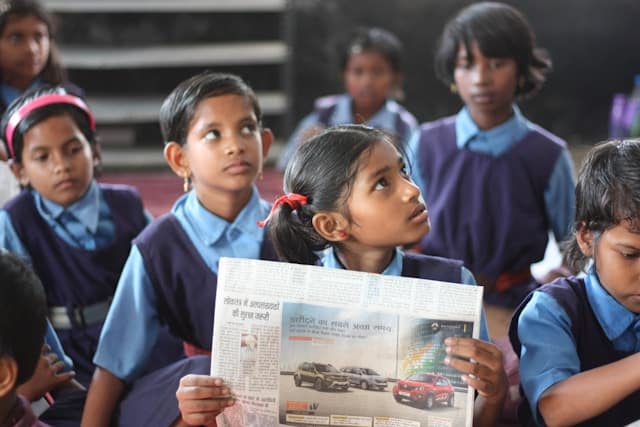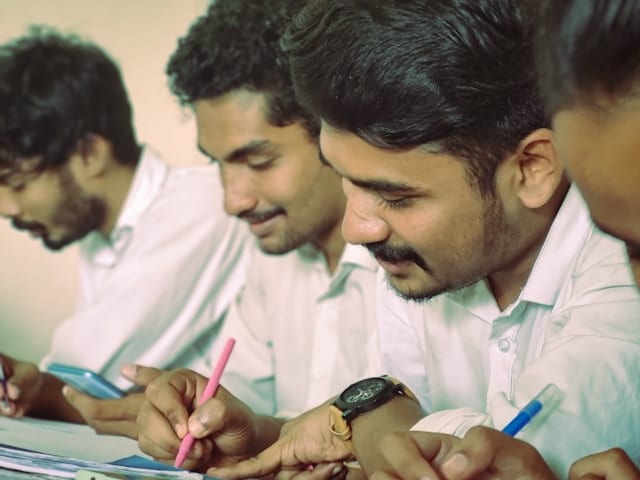Indian students are transforming the landscape of global higher education in ways that were unimaginable just a decade ago. Traditional motivations like prestige, lifestyle, and social status, which once dominated decisions about studying abroad, are now taking a backseat. Families are thinking more strategically, evaluating overseas education like a long-term investment that needs measurable returns. Every program, university, or country is analysed for its potential to boost employability and career growth.
Today, Indian students and their families consider multiple dimensions before making a decision: the academic quality of the institution, the career outcomes offered by specific programs, the availability of scholarships or financial support for Indian students, and post-study opportunities such as H1B visas news for the U.S. market or work permits in other countries. This comprehensive approach reflects a shift from a dream-driven to a results-driven perspective, showing that Indian students are not just learners but strategic planners invested in their future.
With these evolving trends, choosing the right destination has never been more strategic or consequential. Countries that fail to recognise these shifts risk losing high-potential students to destinations that align more closely with their expectations. For Indian students, it’s no longer just about where they can study; it’s about where they can truly succeed, grow, and secure tangible career opportunities.
Table of Contents
Why Career Outcomes Now Drive Decisions for Indian Students
The shift from lifestyle-focused to career-focused decisions has profound implications for the education sector. Indian students and their families now weigh every option based on measurable return on investment. They are no longer making choices solely based on the prestige of a university or the allure of a vibrant city. Instead, they seek programs that promise clear career benefits, high employability, skill development, and robust pathways into global industries.
This is where international scholarships for Indian students play a critical role. Scholarships are not just financial relief; they are strategic tools that allow students to access premium programs without overburdening their families financially. By reducing financial stress, scholarships enable Indian students to focus on academics, networking, and internships that enhance career readiness.
Families also scrutinise programs for outcomes beyond graduation. They ask: Will this course help my child secure a well-paying job? Are the skills transferable globally? Does the destination country provide professional networks and industry exposure that justify the investment? Indian students’ analytical approach ensures that education is not merely a certificate but a tangible stepping stone to long-term professional success.

Academic Opportunities in India for Students: Why Home Choices Still Matter
Even as many Indian students look abroad, domestic academic opportunities remain competitive and increasingly relevant. Evaluating Indian universities and programs in comparison to international benchmarks is becoming standard practice among families. The goal is to determine whether studying locally can achieve similar career outcomes at a fraction of the cost.
Institutions in India are increasingly offering international collaborations, exchange programs, and global certifications, giving students the chance to gain exposure without leaving the country. This strengthens the case for considering academic opportunities in India for students, especially when families want to weigh the balance between quality, cost, and accessibility.
Moreover, the rise of online programs and international partnerships allows Indian students to combine local education with global credentials. In this context, studying in India is no longer a compromise but a viable strategy for gaining world-class skills and experiences. Families now consider domestic options as part of a portfolio strategy, evaluating how each choice aligns with long-term career goals.
Read Also: Adarsh Kumar: The 2025 Global Student Prize Winner
Funding Options and Financial Support for Indian Students: Making Education Affordable
Financial considerations have always been a central part of planning for higher education, but they have taken on new urgency. Families explore multiple funding options for these students, including university-specific scholarships, government grants, private loans, and educational funds from trusts or NGOs. These options are critical for reducing dependence on family savings and making ambitious study plans feasible.
Financial support for Indian students is not just about covering tuition; it extends to living expenses, travel, insurance, and emergency contingencies. Transparent guidance on these support streams helps students make informed decisions without risking their financial stability. Indian families now take a holistic view, balancing the cost of the program against potential returns in terms of employability and career progression.
Understanding these funding options is also empowering for students. By knowing where to apply for grants, which scholarships cover living costs, and how to leverage institutional aid, Indian students can plan for a sustainable study experience abroad. Financial planning becomes a strategic tool, ensuring that ambitious educational goals are realistic and achievable.
H1B Visas News: Planning Beyond Graduation
For Indian students considering the U.S. as a destination, keeping up with H1B visas news is critical. The U.S. H1B visa program is a major pathway for international students to transition from education to employment, allowing them to gain practical experience and potentially permanent residency. Changes in lottery systems, work permit timelines, or policy updates can influence students’ decisions about where to study and which programs to pursue.
Indian students now integrate visa information into their overall study plans. They evaluate programs not only for academic content but also for their alignment with post-study work opportunities. Understanding the current state of H1B visas and related immigration policies allows students to align their education with realistic career pathways, ensuring that their time and investment translate into tangible outcomes.
Awareness of visa trends is also a reflection of the broader strategic mindset of students. They are proactive planners who anticipate policy changes and adapt their plans accordingly. This foresight ensures that their education journey maximises long-term professional success and minimises the risk of disruption due to immigration uncertainties.
How Australian Policy Shifts Impact Indian Students’ Trust
The turbulence in 2024 highlighted how perceptions of policy stability can outweigh policy reality. Indian students and their families make significant financial commitments, sometimes representing years of household savings, so trust and predictability are paramount. Even minor policy shifts can create uncertainty, prompting students to reconsider their options.
Australian institutions now recognise that demonstrating consistent, long-term support for career outcomes is as important as academic quality. Policies alone cannot assure students; communication, reliability, and transparency are equally essential. Institutions that fail to provide clarity risk losing high-potential Indian students to destinations perceived as more stable or supportive.
Indian students are increasingly evaluating destinations as a combination of education, career prospects, and policy certainty. For Australia to remain competitive, it must show that studying there is not only an academic investment but also a secure, rewarding long-term decision.
Read Also: H1B Visa Jobs

International Scholarships for Indian Students: Unlocking Opportunities Abroad
Scholarships now serve as strategic enablers rather than simple financial relief. These students leverage international scholarships for Indian students to access top programs, reduce debt, and gain a competitive edge in the job market. Scholarships also enhance mobility, allowing students to explore internships, research opportunities, and industry placements that might otherwise be unaffordable.
Highlighting available opportunities and eligibility criteria helps students identify programs aligned with both academic interests and career aspirations. It empowers families to make informed choices while reducing financial risk. In many cases, scholarship access can be the deciding factor between pursuing education abroad or opting for domestic alternatives.
Building Long-Term Trust: How Indian Students Decide Where to Study
Perception is now as important as policy. Indian students consider a combination of academic quality, career outcomes, lifestyle, financial certainty, and post-study work prospects before committing to a destination. Australia, the U.S., Canada, and other popular destinations must communicate clearly that they prioritise students’ ambitions and are committed to supporting success beyond graduation.
Building long-term trust involves transparency, consistency, and a focus on outcomes. Students are seeking assurances that their investment in education will pay off, not just in knowledge but in tangible professional growth. Institutions that understand these priorities can attract Indian students, who are increasingly analytical, strategic, and results-oriented in their decision-making.
FAQs
1. What are the top funding options for Indian students studying abroad?
Funding options include government scholarships, private grants, university-specific aid, and low-interest education loans. These options help Indian students minimise financial risk while pursuing global education and ensure that ambitious goals are achievable without overburdening families financially.
2. Which international scholarships for Indian students are most reliable?
Programs like the Fulbright, Chevening, Australia Awards, and Erasmus+ provide structured financial support with clear career and study pathways. They are often competitive but offer substantial benefits that go beyond tuition, including networking, research opportunities, and post-study work guidance.
3. How does H1B visas news affect Indian students’ study decisions?
Policy updates, lottery changes, or visa regulations influence post-study employment opportunities in the U.S. These students now integrate these considerations into their planning to ensure their education translates into practical work experience and long-term career growth.
4. Are academic opportunities in India for students competitive compared to studying abroad?
Top Indian institutions offer world-class programs, but international education is often pursued for exposure, networking, and global employability. Comparing domestic and international options enables Indian students to select programs that best align with career objectives and financial considerations.
5. What financial support for students in India can help cover living expenses abroad?
Beyond tuition, students can explore scholarships, part-time work, and university-specific support. These mechanisms help cover living costs, travel, and healthcare, making education abroad feasible and reducing reliance on family savings.

